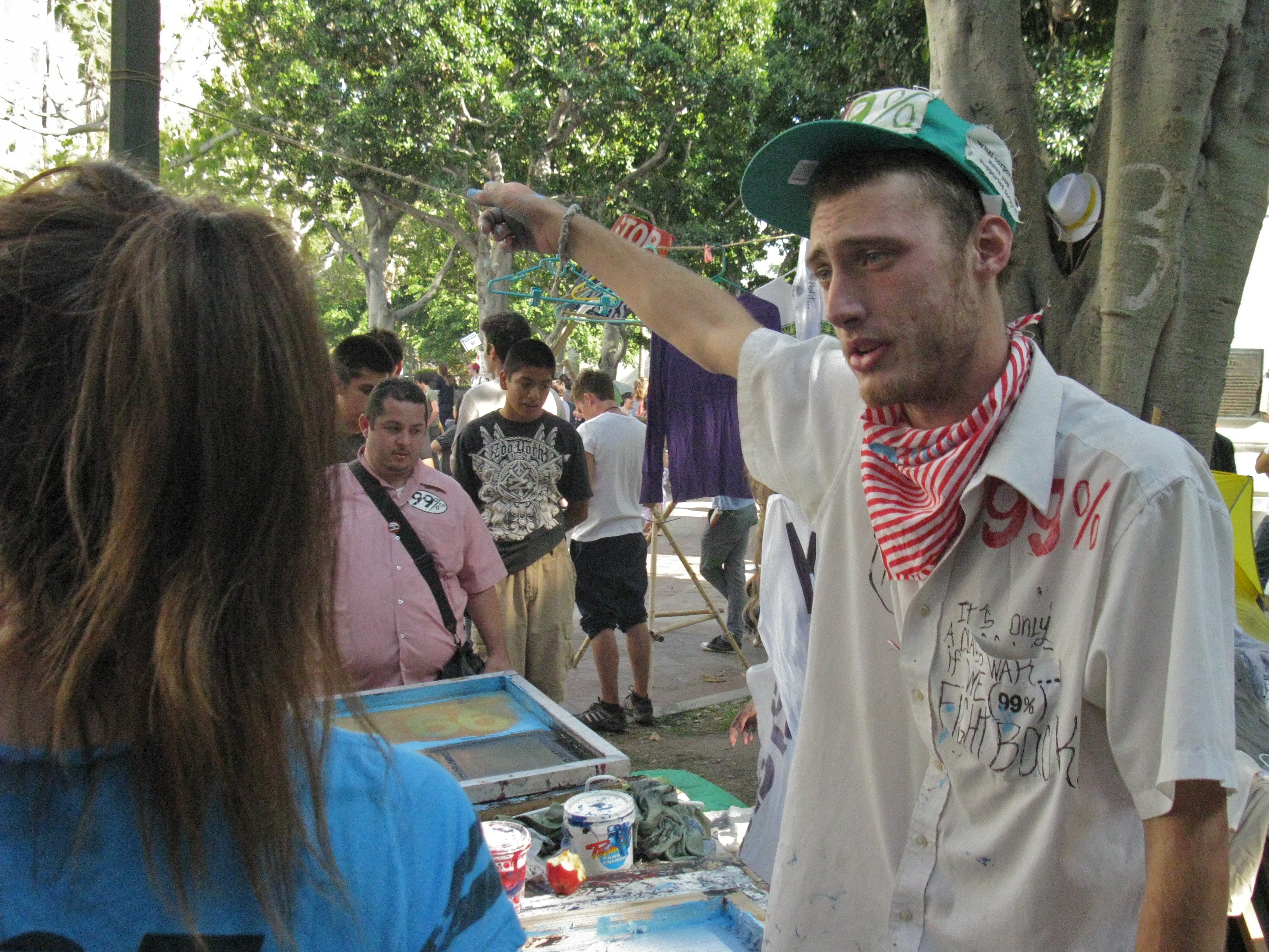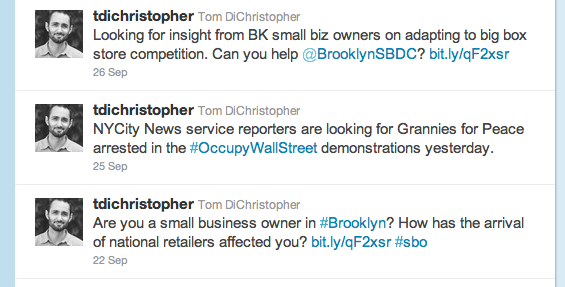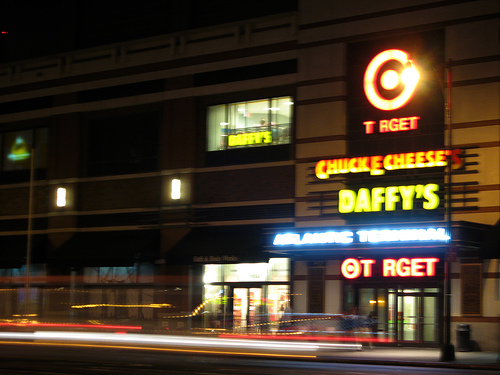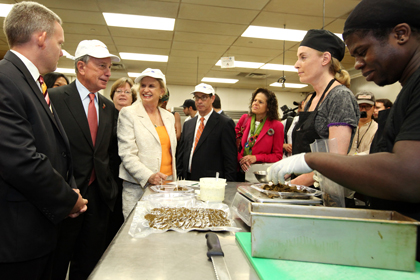When Victor Roundtree started hanging with drug runners in Brownsville Brooklyn as a young man, his old boxing coach pulled him off the streets and taught him how to train boxers. But Roundtree struggled to leave his old life for good. Today, Roundtree, fully reformed, coaches kids at the Teddy Atlas Cops and Kids after-school program, which will soon open its third gym in his native Brownsville. In an interview, Roundtree discusses what eventually got him off the streets for good.
Author Archives: Tom DiChristopher
Drawing Conclusions about College Majors
I recently conducted a survey to find out whether people thought their undergraduate degrees had contributed to their ability to find work later. A few inferences can be drawn among how one decided on a major, prospects for work, and overall satisfaction with income.
One of the first questions asked whether or not respondents felt their undergraduate degree was related to their current line of work. The numbers were pretty evenly split, with an equal number — 34 percent — saying they were very much related and not at all related.

In terms of finding work after graduation, 38 percent said they found work within three months. It took 17 percent four to six months to find work. And 24 percent said they never found work in the field they studied in college.
Continue reading
At Gowanus Warehouse, NYC Skating Gets Back to Roots
When Jose Portes used to search for skate spots in Brooklyn in the late 80s, he traveled with a crew ten deep in case drug dealers harassed them. Today, the 38-year-old co-owner of Homage Brooklyn, a skateboard and snowboard shop in Boerum Hill, is still building a community of skaters. But now he brings them together at a training facility in Gowanus.
The facility, built last fall, is open to local skateboarders on Friday evenings and provides a place for the Homage skate team to train throughout the winter. The Homage TF, as it’s known, doesn’t make any money. Instead the endeavor is about bringing skateboarding back to its roots, reviving the trend of local skate shops like Skate NYC in the East Village supported up-and-coming skaters.
“Kids get to a certain age and the streets raise them,” said Portes. “We’re out in the streets, so they’re like our little brothers. So we want to make sure they go in the right direction.”
Occupying LA with Art
It looks like Occupy LA won’t be dissipating any time soon. With blue skies overhead, temperate weather and permission from City Council to occupy as long as they want, protestors are putting down roots. For some artists, that means establishing a temporary exhibition or creating a workshop in the midst of downtown’s tent city. Below, three Angelenos talk about how Occupy LA inspired them.
Jesse Dottson set up a free shop where his team of graphic artists prints 99% on clothing to help people express solidarity even when they can’t attend the occupation.
Occupy LA jesse by tdichristopher
At Occupy LA, a Sunnier Scene
img_1212
The fate of Occupy Wall Street seems to change with the wind. Mayor Michael Bloomberg has threatened to close down parts of Zuccotti Park for cleaning–only to back down–and insisted that the Constitution does not protect tents.
In LA, however, City Council passed a resolution endorsing the Occupy LA movement headquartered at City Hall. The West Coast 99 percent have transformed the space into a virtual campground. They’ve established many of the same facilities present in Zuccotti–a library, media station, finance department–but they also have portable toilets provided by the city. Artists are setting up installations on the lawn surrounding City Hall. They aren’t banned from using amplified devices, so the people’s mike made iconic by Zuccotti protestors is not as central to day-to-day organizing. Music performances and speeches at this past Saturday’s [R]occupy LA gave the scene the flavor of a festival.
No doubt: the LA protest is inflected with a distinctly West Coast vibe, right down to the bacon-wrapped hot dogs. With permission from the City Council to camp out indefinitely and the cooperation of the mild So-Cal winter, the occupation only seems likely to grow, and perhaps, to outlast Occupy Wall Street.
Career Planning in College: A Process, not an Event
As the economy continues to sputter through recovery, it may be more important than ever for college students to plot a course towards employment from the start of freshman year.
Patricia Imbimbo, PhD, director of Baruch College’s STARR Career Development Center, said students should think out how a major becomes a career sooner rather than later.
“It’s a process not an event, and it’s done in the context of who one is as a person,” said Imbimbo.
Imbimbo said future income is not the first thing students should think about when choosing a major. Instead, they should first consider who they are as a person and take into account their values and skills.
A critical step towards success in a major is looking beyond what Imbimbo calls the “media image of a career.” Many students enter college with unrealistic notions of what it means to work in a given profession. They need to do the research and find out what the reality is, said Imbimbo.
Internships are not only a means of previewing a career, explained Imbimbo, they’re increasingly important in securing work. She said she’s seen more students moving from internships to staff positions, which means there are fewer slots in the recruitment process for those who are interested in working for a company, but haven’t interned there.
How did your college experience contribute to your employment? Take this survey, and let the Interactive Blog know.
Tom’s Social Media Diary, or How Not to Solicit Comments
This week, I was charged with promoting my last blog post and soliciting responses to my closing question: “Are you a small business owner in Brooklyn? How has the arrival of big box stores affected your business? How have you responded?”
How did it go? Let’s look at exhibit A.
Well, exhibit A doesn’t exist. Why? Because I didn’t screen capture the note that I posted to Our Brooklyn, Our Business — and because it no longer exists. Apparently the group doesn’t take kindly to strangers clogging up its feed. So lesson numero uno: build a relationship with people and groups before you post to a page or ask any other sort of favor.
Moving on, let’s look at my first efforts at promoting on twitter:
I didn’t get any response to the 22 Sep post. That #sbo hashtag stands for small business owner, which I found on hashtag.org. I probably could have been more explicit that I wanted people to follow the link and comment.
Moving forward, I thought I’d try to solicit help from a specialist, the Brooklyn Small Business Development Center, or @BrooklynSBDC. What did I get back? Bupkis. Same lesson, different platform. People who don’t know you aren’t likely to help you.
Perhaps the poor response also had to do with my klout. My overall score is a “steady” 35. I have “a good size network that is highly engaged.” I’m engaged by “influencers.” But much of what I’ve tweeted about relates to my past life: Vietnam, ASEAN, and Southeast Asia. So my Brooklyn small business message is likely reaching the wrong audience.
This klout session gave me an idea for my second assignment: soliciting a topic for my survey blog. One of the people I influence is @katelizdee, aka, my big sister Kate. Kate is a Socializer, influential on public relations, social media, and extras (whatever extras are). She’s also a human resources specialist, so…
Kate got back to me via email. Her response: “What about something along the lines of the domino effect from the recession and grads competing for entry level jobs? Something like that?” She also said she’d have to email her contacts, as many HR folks aren’t actually on twitter. So that’s still social networking, right? Right?
Back to Facebook. Here was another attempt:
Nothing. Perhaps I was a bit vague. Taking a page from my twitter lesson, I decided to narrow my scope and give people a bit more direction. I wouldn’t look for a specific topic, but fodder for inspiration. I sent six friends who work in editorial or creative capacities the following message:
Hey there. If you’re receiving this, it’s because you are or were in a creative or editorial field in New York between 2007 and today. I’m soliciting insight on what folks like yourselves did to keep afloat during these tough years when we were introduced to such cherished terms as “permalancer”. How did you cope? Did any unexpected positive experiences come out of your brush with the downturn? What steps did you take to keep yourself sharp and competitive when work was trickling in or at a standstill?
By the time I wrote this very post you’re now reading, one person had gotten back to me. And a CUNY J-School graduate no less. Her insight was troubling to say the least. But it did give me some ideas for a survey, which I may conduct on job-hunting and expectations for post-graduate school life.
In a Big Box World, a Small Brooklyn Business Adapts
Seven years ago, Larry took over the store where he had worked for more than a decade, Power Video & Electronics at 1703 Pitkin Ave. in Brownsville, Brooklyn.
His first order of business? Start selling furniture.
Larry, who declines to give his last name — even on his business card — made the move because he couldn’t match electronics prices at big box stores like Best Buy and Target. So Power Video & Electronics is now Power Furniture.
The days when national retailers were still hesitant to set up shop in Brooklyn must seem like ancient history to Larry and other small businesses along Pitkin Avenue. Indeed, the arrival of more and more big box stores means Larry and his fellow small retailers need to stay on their toes.
Tom DiChristopher eHed
HED: Construction Employment Continues to Decline in NYC
eHed: NYC construction jobs not recovering much since recession
Jobs, The Bloomberg Way
Last Thursday, President Obama introduced his jobs plan, but Mayor Bloomberg likely won’t be waiting for imported fixes.
The mayor is widely known for his belief in the city as the seat of solutions. Here’s a look at a few of his homegrown employment initiatives.
- Entrepreneurship New York Daily News writer Joanna Molloy is so smitten with Bloomberg’s Department of Small Business Services, she suggested Obama adopt the initiative. The department offers entrepreneurs a range of free services, grants, and assistance. Last year, it helped create or fill 31,000 jobs.
- Outreach A three-year plan aims to boost employment and reduce recidivism among young black and Latino men. It will place job recruitment centers in public housing and pair morning classes with paid afternoon internships. Bloomberg and fellow billionaire George Soros will pay roughly $60 million of the program’s estimated $130 million cost.
- Tech In July, Bloomberg announced the city will give free land and incentives to the educational institution that presents the best plan for an NYC-based applied engineering university. In the long term, the project is intended to diversify Gotham’s economy. More immediately, it’s expected to produce jobs in construction and related sectors.
- Hollywood This fall season, a record 23 primetime shows will shoot in New York. Recognizing opportunity, the mayor’s Office of Media and Entertainment started the Made in NY Production Assistant Training Program. Over five years, the program has trained about 300 disadvantaged and unemployed New Yorkers — people like James Adames — for entry-level film jobs.








